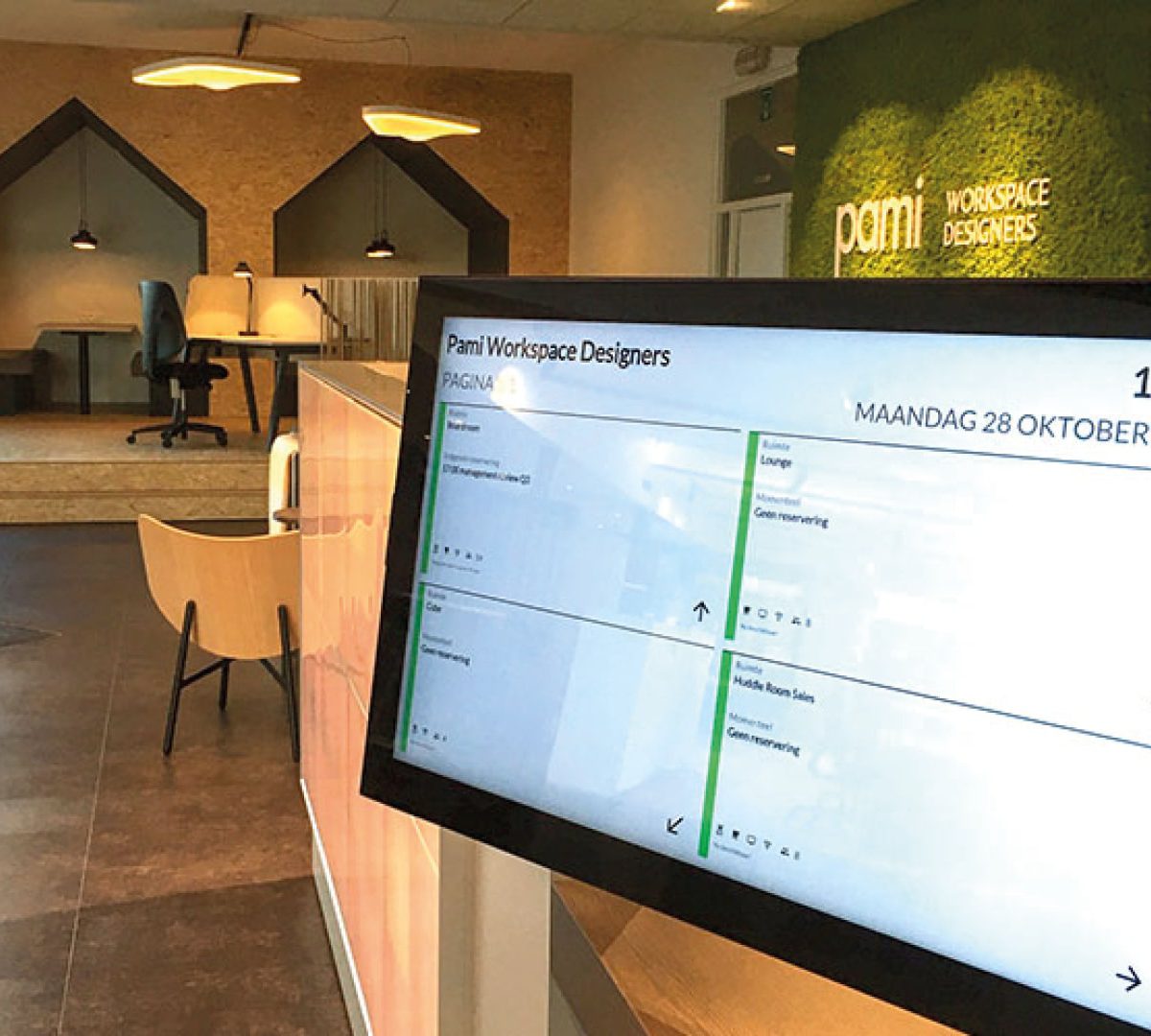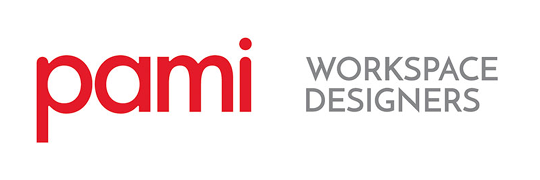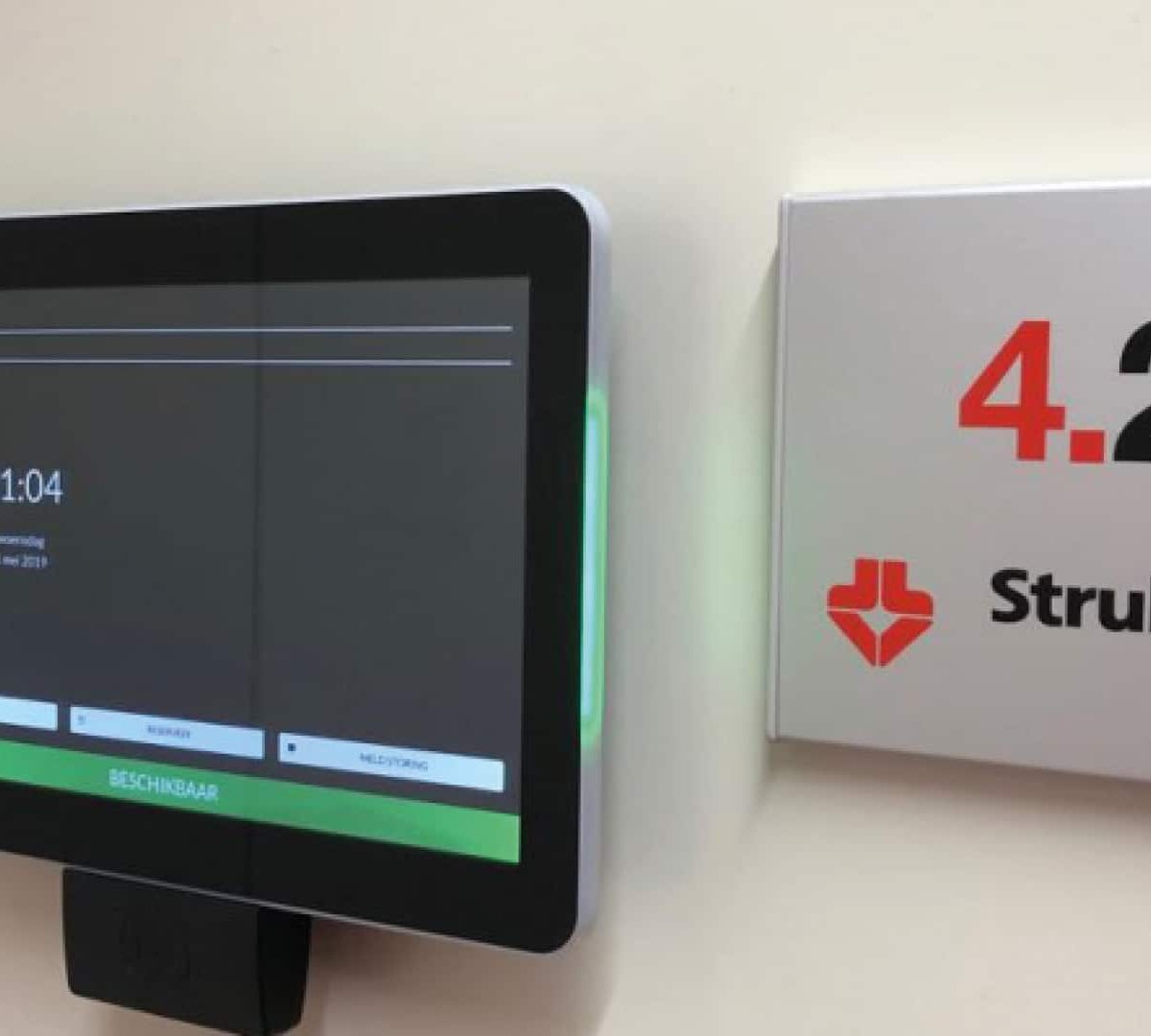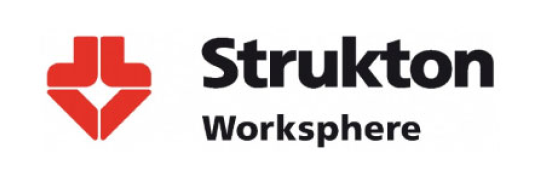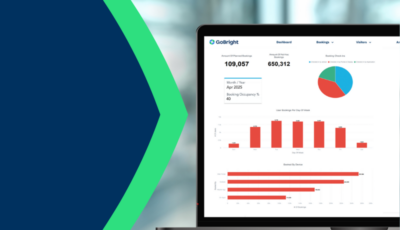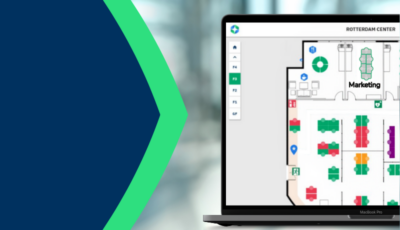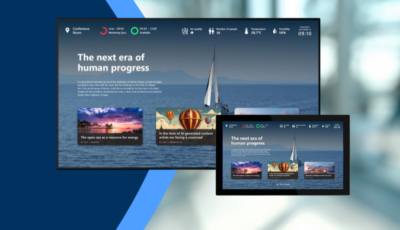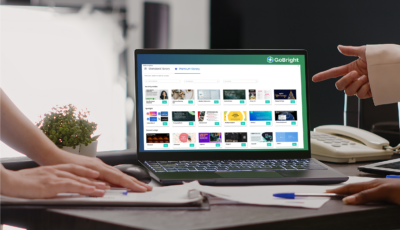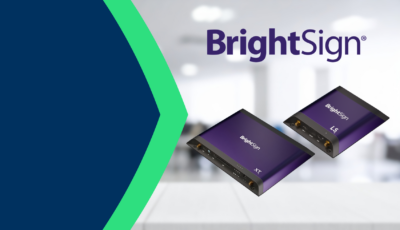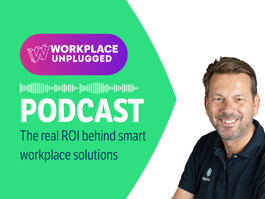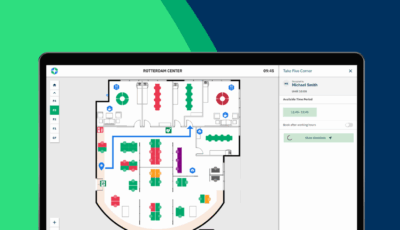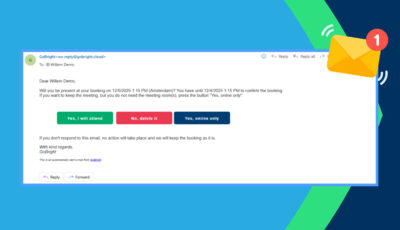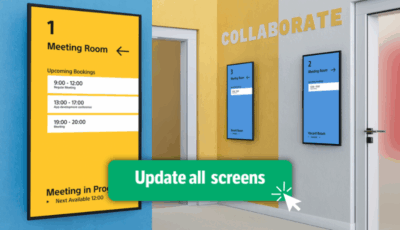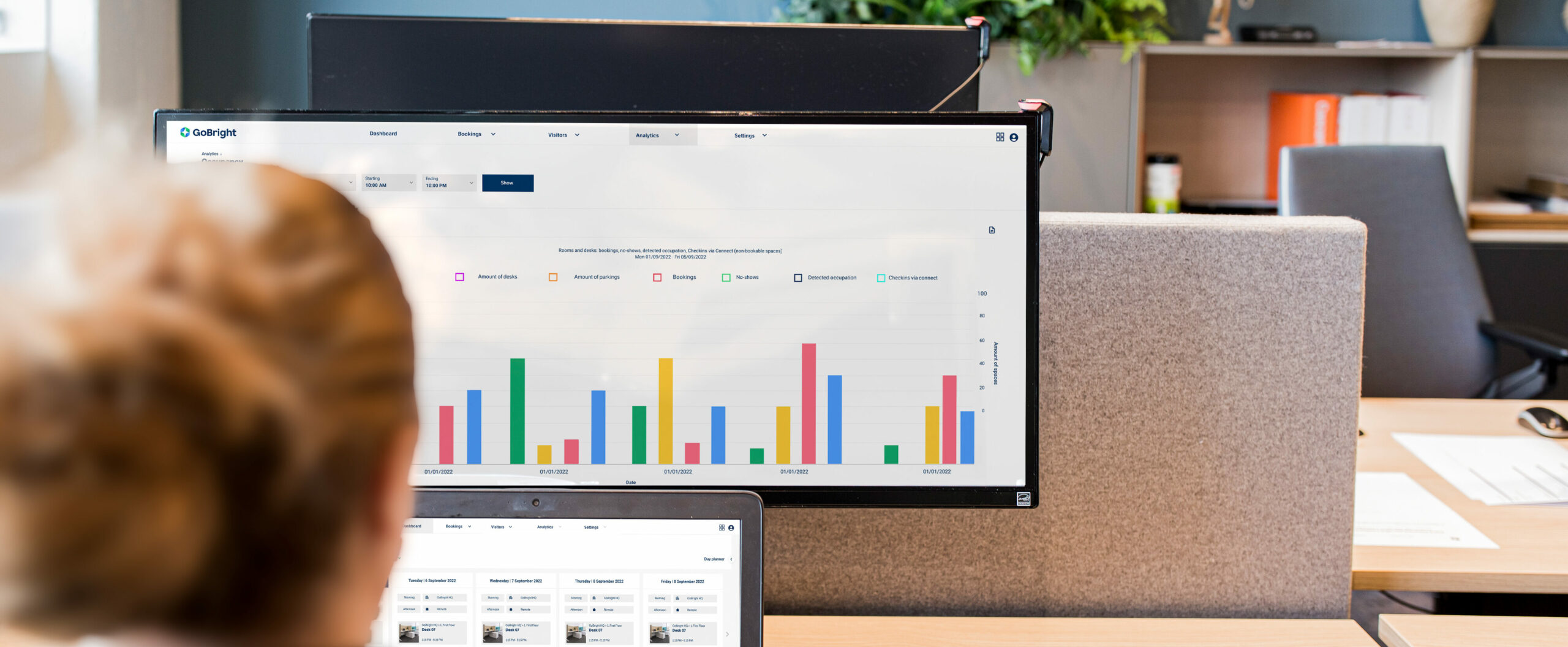
Data-driven workplace
Track workplace utilisation and make data-driven decisions for your future office space needs.
- Accurate office occupancy overview.
- Understand user behaviour and preferences.
- Develop new ways of working.
What to expect from Workplace Analytics
Collecting data through analytics is essential to creating a future-proof and effective workplace.
Real-time overview
Gain insight into the real-time occupancy of your office.
Sensor data
Use sensors to gain 100% accurate insights into the use of your office.
Smart Technology
Use smart technology to gather data of bookings, check-ins, no-shows and ad hoc occupations.
New ways of working
Create new ways of working in your office by understanding and adapting to data analytics.
Data-driven decisions
Be informed on making the right choices regarding office design and functionality.
Efficient space usage
Optimise your workplace’s design according to employee needs and save money.
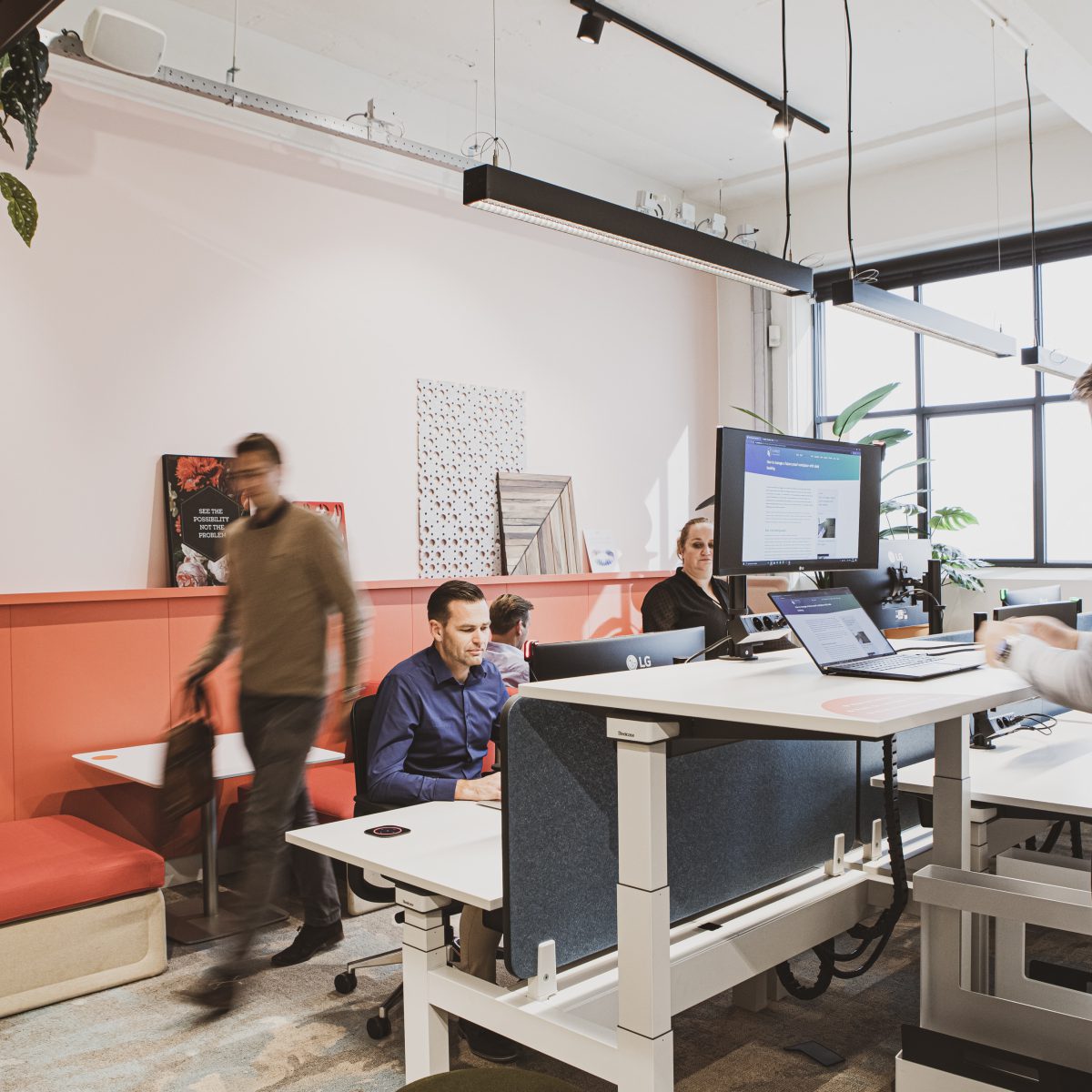
Workplace Management
With the help of workplace analytics, managing the workplace becomes much easier. As the workplace evolves, it is becoming more evident that the work environment is changing to an agile and flexible space. How do you manage occupancy, no-shows and desk sharing, for example, when everyone is designing their own workweek? Smart Technology tools give insight into real-time occupancy. This helps you to analyse what workdays/workhours are the busiest, what type of desks/rooms are favourited and how to reduce the number of no-shows.
Gathering Data
Gathering data is done through measuring. With these measurements you can make fact-based predictions for optimising or redesigning your workplace. Our software and applications provide these important insights within the GoBright Online Portal. Check how many desks and rooms are booked, get real-time insight into occupancy rates with Desk Sensors and Room Sensors, and view check-ins via the GoBright Connect or Interact. The GoBright Portal includes many filters that help you in analysing the gathered data correctly. See data for certain locations, floors, days, or even hours.
You can link GoBright data with other collected data in your preferred analysis tool with our Analytics API. Additionally, we have an integration with Microsoft Power BI. These developments allow you to make your own dashboard with all information combined in one place.

Office Space Utilisation
Floor space is expensive and unused desks are an unneccessary expense. Utilising the workplace smartly and efficiently is therefore very important. With the trends and insights into user behaviour and preferences discovered from the analyses, you can make strategic decisions. You can collect this data via the GoBright Connect / Interact, NFC Stickers, and detections from sensors. Experience tells us that hybrid workplaces generally only need one workspace per 4 employees. Want to know how this can help you save money using workplace analytics?
All insights lead to possible adaptions in office utilisation. The key to success in today’s hybrid work environment, is the ability to optimise space usage and to make flexible decisions. Analyse employee behaviour and learn to understand their needs. It all starts with workplace analytics.
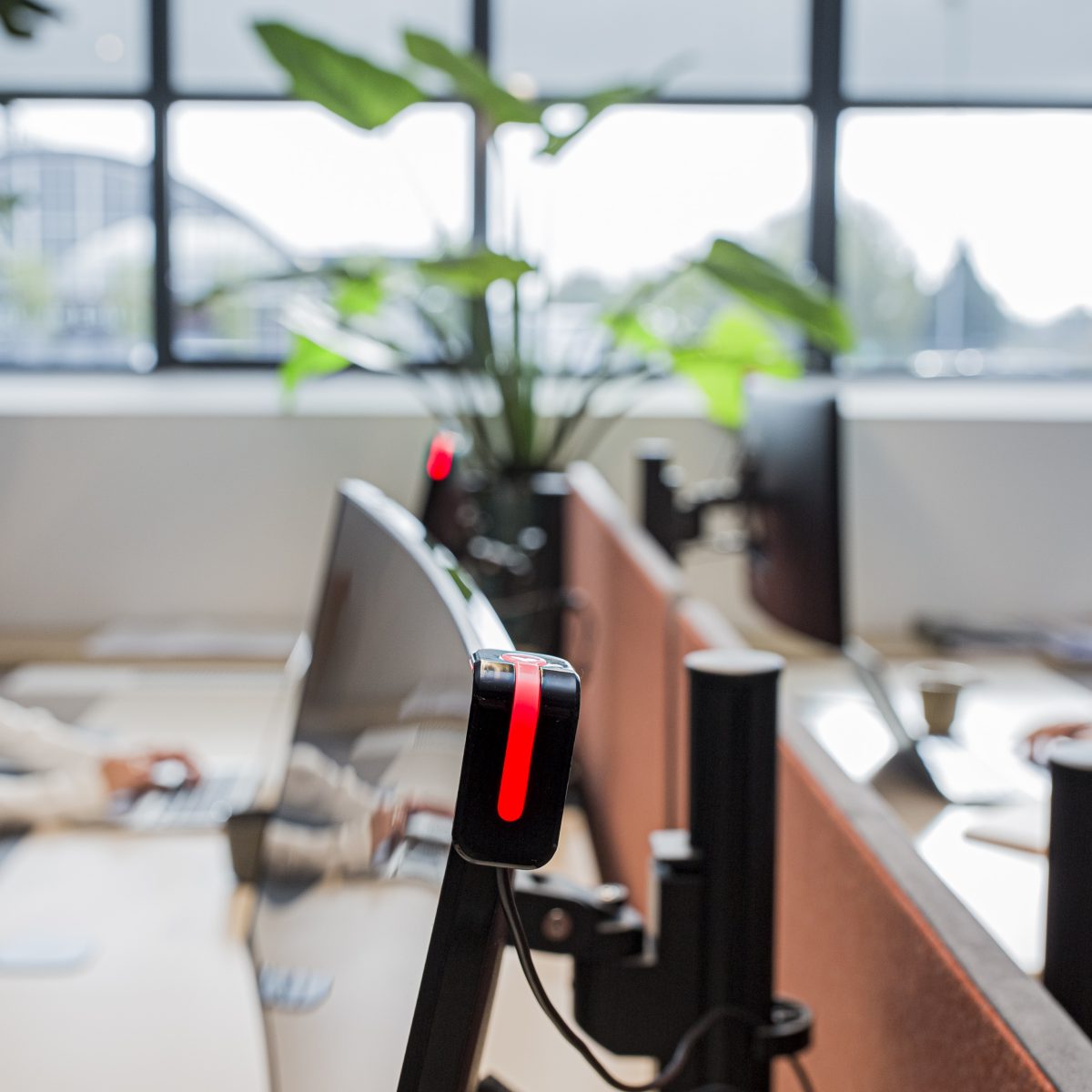
Creating a data-driven office with GoBright
GoBright offers endless possibilities to use the workplace in a smarter and more efficient way.
Read about other solutions
Returning to the Office, or implementing Hybrid Working by using Smart Office Solutions, forces you to think about creating a better Employee Experience and a Sustainable Office.
Discover how other companies optimised their workflow with our smart office technology
FREQUENTLY ASKED QUESTIONS about the data-driven workplace
Explore our FAQ’s to find quick answers to common queries about our products, solutions, and services.
What is a data-driven workplace?
What are the benefits of a data-driven workplace?
What are Workplace Analytics?
What are the benefits of workplace occupancy measuring?
How can you measure Office Space Utilisation?
Read our latest smart office resources
Ready for more?
Get in contact with Willem, our Product Manager.

